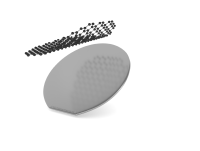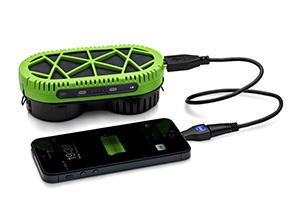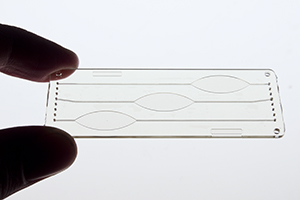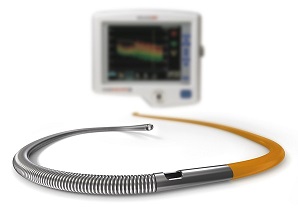Spin-offs
Below is a list of examples of research from the department that has been commercialized.
|
Company: Extendo Medical Founded: 2024 Information: Extendo Medical is developing next-generation endovascular sampling devices. |
|
|
Company: Aperya Founded: 2023 Website: aperya.comInformation: Aperya is commercialising a microscale technology, which can be integrated into topical creams and thereby significantly increase drug uptake through the skin. |
|

|
Company: Samplimy Medical AB Founded: 2023 Website: samplimy.com Information: Samplimy is on its mission to reduce the inconveniences of blood sampling entailed today in medical diagnostics by using microneedle technology. We are developing a painless and blood-free microsampling device to extract interstitial fluid for clinical studies, point-of-care and homecare applications. |

|
Company: In2great Materials AB Founded: 2022 Website: in2great.se Information: In2great Materials provides a technology that brings atomically thin materials into semiconductor foundries. This new class of 2D materials promises to advance sensing, photonics, and electronics. |

|
Company: Lucky Loop Medical Founded: 2022 Website: luckyloopmedical.com Information: We develop cell brushes to harvest cells from cystic walls during endoscopic fine needle aspiration (EUS-FNA). These cells form a biomarker for the early detection of cancer, e.g., in the pancreas. Lucky Loop Medical is a spin-off from KTH Royal Institute of Technology and the Karolinska University Hospital in Sweden. Key scientific principle: Marques et al. 2021 |

|
Company: UTI-lizer Founded: 2021 Web address: www.utilizer.se/ Information: We develop point-of-care diagnostic tests for urinary tract infections that are clinically relevant, fast and cost-effective. UTI-lizer is a spin-off from KTH Royal Institute of Technology, Sweden. Key scientific principle: Emre Iseri et al. 2020 |

|
Company: TeraSi Founded: 2020 Web address: terasi.io Information: TeraSi is a deeptech startup based in Stockholm, Sweden which offers unique components and packaging for high-frequency wireless applications. Founded in 2020, TeraSi’s technology builds upon academic research at KTH Royal Institute of Technology and years of internal R&D. The company designs and manufactures all components from its Stockholm headquarters and now embarks upon a mission to scale their technology and bring it to mass markets. |

|
Company: Grein Research Founded: 2016 Web address: www.greinresearch.com Information: Grein Research provides bespoke thin film coatings to the glass, chemical, and geothermal power industries. Grein has extensive competence in magnetron sputtering technology, enabling them to provide unique functional optical coatings, catalytic surfaces, and corrosion resistance treatments. |
|
|
Company: Capitainer Founded: 2016 Website: capitainer.com Information: Our microsampling devices collects a precise volume of blood, plasma or fluids, perfect for remote clinical microsampling using capillary finger blood. |

|
Product: JAQ fuel cell Commercialized: 2012 Spin-off Company: MyFC Information: In 2004, we invented a novel assembly method for fuel cells, which allows them to be lighter, smaller and less costly, while providing a higher power output for a given size. The technology, published in the Journal of Power Sources in 2005, is commercialized by the spin-off company MyFuelCell (founded in 2005). Later, the product became available on the market under the brand name JAQ(TM). |

|
Product: OSTEmer polymers Commercialized: 2011 Spin-off Company: Mercene Labs Web address: www.mercenelabs.com Information: We invented OSTEmer(TM) a novel polymer platform for rapid prototyping of microfluidic devices and labs-on-a-chip with material and processing properties compatible with both the academic lab setting and large-scale production. Based on off-stoichiometry thiol-ene (OSTE) chemistry, a rapid UV-curing enables properties such as a wide range of tunable mechanical properties, tunable surface chemistry, and a low-temperature direct bonding process not requiring any surface activation or glues. |

|
Company: Silex Microsystems Founded: 2000 Web address: www.silexmicrosystems.com Information: In 2000 five former PhD students at the department of Micro and Nanosystems started Silex Microsystems, a MEMS foundry. Today, Silex is the world’s largest pure-play MEMS foundry, offering industry’s most advanced MEMS, heterogeneous wafer-level packaging, and state of the art MEMS manufacturing tools and equipment. |

|
Product: Pressure Wire Commercialized: 2000 Company: St. Jude Medical Systems AB Web address: www.sjm.com Information: In 1998 a MEMS-based ultra-miniaturized pressure sensor was developed by our group together with Radi Medical Systems AB. The product has become a huge clinical and commercial success within St. Jude Inc. and incorporated in their world-leading product portfolio. In 2009, a large randomized trial published in the New England Journal of Medicine, confirmed that routine use of the device in a sensor-guided minimally invasive surgical procedure reduces mortality and myocardial infarction after one year by 35% compared to the standard procedure. This and the governance of St. Jude has led to that this pressure sensing system now being common medical practice and sold in over 100.000 units per year. |

